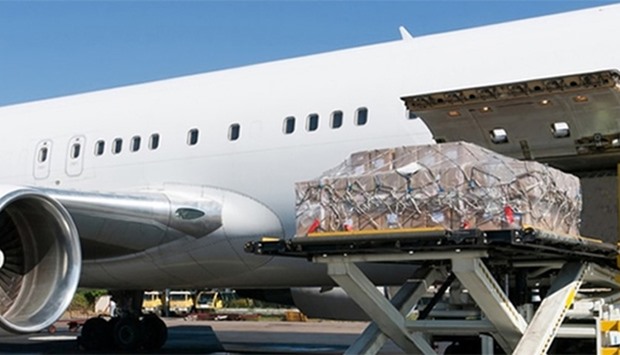With the right government incentives, the airline industry could see 30bn litres of Sustainable Aviation Fuel (SAF) by 2030, noted IATA’s Global Head of Cargo Brendan Sullivan.
“SAF is the key to achieving net zero emissions. Airlines used every drop that was available in 2021. And it will be the same this year. The challenge is SAF production capacity. The solution is government incentives. With the right incentives, we could see 30bn litres of SAF by 2030. That would be a tipping point by 2030 towards our net zero ambition of ample SAF quantities at affordable prices,” Sullivan said at the 15th World Cargo Symposium (WCS).
(IATA) highlighted four priorities to build resilience and strengthen air cargo’s post-pandemic prospects.
The priorities, outlined at the 15th World Cargo Symposium (WCS), in London are achieving net zero carbon emissions by 2050, continuing to modernise processes, finding better solutions to safely carry lithium batteries and making air cargo attractive to new talent.
“Air cargo had a stellar year in 2021 achieving $204bn in revenues. At present, however, social and economic challenges are mounting. The war in Ukraine has disrupted supply chains, jet fuel prices are high and economic volatility has slowed GDP growth. Despite this, there are positive developments.
“E-commerce continues to grow, Covid restrictions are easing, and high-value specialised cargo products are proving resistant to economic ups-and-downs. Going forward, achieving our net zero commitment, modernising processes, finding better solutions to safely carry lithium batteries, and making air cargo attractive to new talent are critical,” said Sullivan.
In 2021 the aviation industry agreed a balanced plan to achieve net zero CO2 emissions by 2050. A potential scenario for this is:
• 65% through Sustainable Aviation Fuel (SAF)
• 13% from hydrogen and electric propulsion
• 3% from more efficient operations
• 19% through offsets and eventually through carbon capture, as an out-of-sector solution while technology develops
“People are the core of any improvement in what air cargo can deliver. Sadly, we saw thousands of jobs leave the industry during Covid-19, especially cargo handlers. We are now competing for talent in a very tight job market. And when we do find the right and willing talent, training and longer-than-usual security clearance processes delay their entry into the workforce,” said Sullivan.
IATA called for governments to accelerate clearance processes, including those for security, as a short-term solution and longer term to do a better job of attracting, onboarding, and retaining talent.
The association also encouraged more cargo carriers to sign on to the industry-wide 25by2025 initiative to promote gender diversity.
“The need to create equal opportunities for the female half of the world’s population is highlighted by the situation today where the industry is struggling to attract sufficient talent. Achieving an equal gender balance must be core to any long-term talent strategy,” said Sullivan.
“SAF is the key to achieving net zero emissions. Airlines used every drop that was available in 2021. And it will be the same this year. The challenge is SAF production capacity. The solution is government incentives. With the right incentives, we could see 30bn litres of SAF by 2030. That would be a tipping point by 2030 towards our net zero ambition of ample SAF quantities at affordable prices,” Sullivan said at the 15th World Cargo Symposium (WCS).
(IATA) highlighted four priorities to build resilience and strengthen air cargo’s post-pandemic prospects.
The priorities, outlined at the 15th World Cargo Symposium (WCS), in London are achieving net zero carbon emissions by 2050, continuing to modernise processes, finding better solutions to safely carry lithium batteries and making air cargo attractive to new talent.
“Air cargo had a stellar year in 2021 achieving $204bn in revenues. At present, however, social and economic challenges are mounting. The war in Ukraine has disrupted supply chains, jet fuel prices are high and economic volatility has slowed GDP growth. Despite this, there are positive developments.
“E-commerce continues to grow, Covid restrictions are easing, and high-value specialised cargo products are proving resistant to economic ups-and-downs. Going forward, achieving our net zero commitment, modernising processes, finding better solutions to safely carry lithium batteries, and making air cargo attractive to new talent are critical,” said Sullivan.
In 2021 the aviation industry agreed a balanced plan to achieve net zero CO2 emissions by 2050. A potential scenario for this is:
• 65% through Sustainable Aviation Fuel (SAF)
• 13% from hydrogen and electric propulsion
• 3% from more efficient operations
• 19% through offsets and eventually through carbon capture, as an out-of-sector solution while technology develops
“People are the core of any improvement in what air cargo can deliver. Sadly, we saw thousands of jobs leave the industry during Covid-19, especially cargo handlers. We are now competing for talent in a very tight job market. And when we do find the right and willing talent, training and longer-than-usual security clearance processes delay their entry into the workforce,” said Sullivan.
IATA called for governments to accelerate clearance processes, including those for security, as a short-term solution and longer term to do a better job of attracting, onboarding, and retaining talent.
The association also encouraged more cargo carriers to sign on to the industry-wide 25by2025 initiative to promote gender diversity.
“The need to create equal opportunities for the female half of the world’s population is highlighted by the situation today where the industry is struggling to attract sufficient talent. Achieving an equal gender balance must be core to any long-term talent strategy,” said Sullivan.


